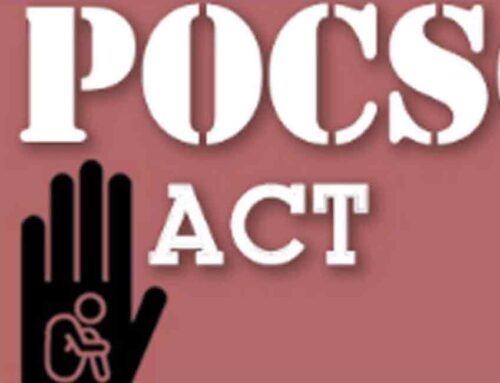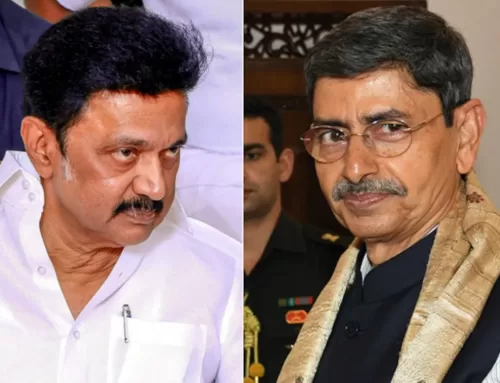– Abul Kalam Azad Sulthan, Advocate, High Court of Judicature at Madras and Madurai Bench of Madras High Court & Partner, Spicy Law Firm.
Just as freedom of speech empowers you to express your thoughts, it also comes with the responsibility to respect the rights of others. This intricate balance is encapsulated in Article 19, which permits reasonable restrictions on fundamental rights to maintain public order and security. Understanding these limitations is vital for you to navigate the complex intersection of individual liberties and societal responsibilities. Explore how these restrictions aim to protect against abuses while safeguarding the essence of freedom in a democratic society.
Key Takeaways:
- Balancing Act: Article 19 emphasizes the importance of balancing the fundamental right to freedom of speech with the need for reasonable restrictions to maintain public order and morality.
- Framework for Restrictions: The Article provides a framework under which the government can impose restrictions, ensuring they are necessary and not arbitrary or excessive.
- Judicial Interpretation: The judiciary plays a critical role in interpreting what constitutes reasonable restrictions, ensuring that the laws uphold the values of democracy and individual rights.
Historical Context of Article 19
Before delving into the intricate domain of reasonable restrictions under Article 19, it is crucial to explore the historical context that shaped the framework of freedom of expression. You may find it enlightening to trace the roots of this right, recognizing its emergence as a fundamental component of democratic governance. With the rise of individual autonomy and human rights philosophies during the Enlightenment in the 18th century, thinkers such as Voltaire and John Locke passionately argued for the necessity of free speech. Their advocacy laid the groundwork for modern democratic principles, emphasizing that the ability to express oneself freely is intrinsic to individual dignity and societal progress. The significance of this right cannot be overstated; it has become synonymous with the pursuit of truth and the flourishing of creativity, enabling dissent and dialogue that drive a healthy democratic discourse.
With the adoption of the Universal Declaration of Human Rights in 1948, the global consensus on the indispensable value of freedom of expression was cemented. Article 19 of the Declaration asserts that everyone has the right to freedom of opinion and expression, which includes the freedom to hold opinions without interference and to seek, receive, and impart information and ideas through any media. In the Indian context, inspired by these international ideals, the framers of the Constitution recognized the importance of safeguarding this right in Article 19, ensuring that citizens could voice their thoughts without fear of repression. This legal endorsement positioned free speech as a central pillar in fostering a vibrant democracy, where accountability and transparency become achievable through open dialogue. The protection of this right reflects a society’s commitment to allowing individuals to challenge prevailing norms, advocate for justice, and promote progress.
As you examine the foundations upon which Article 19 rests, it becomes evident that while freedom of expression is celebrated as a principle, it is also imperative to recognize the complexities that arise in its application. One must grapple with the notion that unbridled freedom can lead to chaos and harm, prompting societies to explore the tension between individual liberties and collective responsibility. The introduction of reasonable restrictions aims to navigate this delicate balance, ensuring that the right to express oneself does not infringe upon the rights and security of others. History teaches us that complete liberty without boundaries can undermine the very fabric of democracy, which is why understanding this philosophical evolution is critical for appreciating the rationale behind restrictions placed on free speech.
Origins of Freedom of Expression
With the historical trajectory of freedom of expression firmly established, you should consider its origins in the context of socio-political movements. Early expressions advocating for free speech were often met with fierce opposition from authoritative regimes, which recognized the threat posed by dissenting voices. The Magna Carta of 1215, though primarily focused on limiting monarchical power, can also be viewed as an early acknowledgment of the need for certain freedoms, including the right to speak freely against unjust governance. Over time, these sentiments coalesced into philosophical doctrines arguing for the intrinsic worth of human expression. The American Revolution and the subsequent First Amendment encapsulate these ideals within a foundational legal framework, serving as a beacon for democratic societies aspiring to protect individual rights.
As you reflect on this evolution, it is evident that significant milestones have defined the struggle for free speech. You ought to recognize the role played by historical conflicts, revolutions, and societal shifts in shaping perceptions of expression. The French Revolution, with its rallying cry for liberty, equality, and fraternity, reinforced the understanding that freedom of expression is a cornerstone of the social contract between the state and its citizens. Likewise, the global movements for civil rights have illuminated the necessity for amplifying marginalized voices, emphasizing that true freedom of expression must encompass diversity and the protection of all individuals regardless of their backgrounds. This journey toward recognition has been marked by resistance and resilience, underscoring the enduring pursuit of a society where every voice matters.
Evolution of Restrictions on Free Speech
Any discussion about freedom of expression is incomplete without addressing the evolution of restrictions</strong placed on this right. While the initial advocacy for free speech sought to liberate individuals from tyrannical control, the reality of governance necessitated the articulation of boundaries. Societies have grappled with the challenge of distinguishing between constructive criticism and harmful speech, leading to the introduction of various legal restrictions. These encompass limits on hate speech, defamation laws, and provisions against incitement to violence, reflecting an acknowledgment that absolute freedom can sometimes pose threats to social harmony and individual safety.
Another significant aspect worth noting in the evolution of restrictions on free speech is the role of modern technology and social media. As communication methods have advanced, the challenges surrounding free expression have multiplied. The proliferation of digital platforms can lead to the rapid spread of misinformation and hate speech, prompting authorities to reconsider the efficacy of conventional restrictions. This contemporary context demands a nuanced understanding of responsibility, as the online environment presents unique hurdles in ensuring that the right to speak freely is harmonized with the need to protect individuals and communities from harm. You find yourself at a crossroads where ethical considerations intersect with the law, compelling you to reflect on what limitations, if any, should be imposed to maintain a civilized society while safeguarding the essence of freedom of expression.
The Concept of Reasonable Restrictions
There’s a fine line that delineates the freedoms you cherish from the bounds of responsibility imposed upon you by the state. At the heart of this discussion lies the concept of reasonable restrictions, which act as a safeguard against the potential abuse of rights. In democracies, various rights are guaranteed to individuals, particularly under Article 19 of the Indian Constitution. However, these rights are not absolute; they exist within a framework that allows for limitations. Understanding the essence of these reasonable restrictions is crucial, for it balances the individual’s liberties with broader societal needs, thereby ensuring harmony and order. It serves as a reminder that while you are free to express your opinions, such expression cannot incite violence or hatred against others.
Defining Reasonable Restrictions
Defining reasonable restrictions requires an understanding of the principles that govern individual liberties and public order. These restrictions are intended to prevent actions that could harm others or disturb social peace. Under Article 19, the Indian Constitution lists certain grounds—such as sovereignty, integrity, security of the state, public order, decency, morality, and contempt of court—as legitimate bases for such limitations. This implies that while your expressions are valued, they can be curtailed if they threaten the greater good or infringe upon another person’s rights. The judiciary plays a critical role in interpreting these guidelines, weighing the significance of individual freedoms against the necessity of protecting the society at large.
Moreover, the test of reasonableness tends to focus on proportionality. This principle requires that the restrictions imposed are not excessive in relation to the desired objective. For instance, if a law curtails free speech in the interest of maintaining public order, it should only do so to the extent required to achieve that end. In essence, the degree of restriction should align closely with the seriousness of the threat posed to public order or social harmony. This careful calibration underscores the commitment to preserving individual rights while recognizing that your freedom cannot come at the expense of another’s safety or dignity.
In defining reasonable restrictions, the legal and philosophical foundations stand together, ensuring a structure that reinforces the responsibility accompanying rights. Consequently, this balance is not merely a legal ideal but a practical guideline shaping your interactions within society, urging you to appreciate the limits of your freedoms while understanding the broader implications of your actions.
Balancing Individual Rights with Collective Interests
The balancing act between individual rights and collective interests is one that society must navigate delicately. You live in a community where the rights of one can oftentimes infringe upon the rights of another. Consequently, while exercising your rights to freedom of speech or assembly, it is crucial to consider the potential impact of your actions on others. The law often steps in to moderate this interplay, establishing boundaries that aim to harmonize personal freedoms with the collective well-being. The necessity for such regulation becomes particularly evident in scenarios where unrestricted exercise of rights could lead to disorder or conflict, fundamentally disrupting the social fabric.
Plus, the implications of this balance extend beyond legal ramifications; they influence social norms and cultural values. By cultivating an awareness of collective interests, you foster a sense of responsibility that is vital for long-term democratic functioning. The dialogue surrounding reasonable restrictions encourages you to engage critically with the alternatives available, weighing your rights against the potential ramifications of their exercise. This consciousness of the fragile balance between freedom and responsibility, individualism and collectivism, speaks to your role as not merely a bearer of rights but as an active participant in the preservation of societal order.
Types of Reasonable Restrictions
Your understanding of reasonable restrictions under Article 19 is crucial for grasping the nuanced balance between *freedom* and *responsibility*. The provisions within this article provide a framework that allows for the protection of various societal interests while simultaneously safeguarding individual liberties. Below is a table that outlines the key types of reasonable restrictions:
| Type of Restriction | Purpose |
| National Security and Public Order | Prevention of chaos and protection of national integrity |
| Protection of Morality and Decency | Ensuring societal values and standards are maintained |
| Maintenance of Friendly Relations with Foreign States | Avoiding international conflicts and ensuring diplomacy |
| Public Health and Safety | Protecting citizens from physical harm and diseases |
| Defamation and Contempt of Court | Safeguarding individuals’ reputations and judicial integrity |
National Security and Public Order
Restrictions on *freedom of expression* are often imposed in the name of *national security* and *public order*. These restrictions are justified when endeavors are made to protect the nation from internal and external threats that may compromise its sovereignty or safety. You must comprehend that while the right to freedom is foundational, it does not extend beyond the scope of causing unrest or jeopardizing public peace. Consequently, the government often employs these restrictions to maintain societal stability, particularly in times of unrest or political turmoil.
The balance struck by these restrictions is of utmost importance. They must not prevail to a degree that stifles legitimate dissent or suppresses free debate; instead, they ought to work as a necessary safeguard against militant ideologies and actions that could dismantle the very fabric of society. Therefore, you should recognize that a society must willingly sacrifice a fraction of its freedom when the threat to *national integrity* looms large. This delicate equilibrium is necessary for sustained *democracy*.
Moreover, courts of law often have the challenge of interpreting what constitutes a threat to national security versus what is permissible speech. The defining lines are frequently blurred, which necessitates rigorous judicial oversight and a commitment to maintaining an equilibrium between securing the state and upholding rights. The rationale behind these restrictions weeds out any legitimate concerns that the population may have, allowing citizens to voice concerns while understanding the greater good that sometimes mandates limitations.
Protection of Morality and Decency
To understand the nuances of reasonable restrictions, it is necessary to address the concept of *protection of morality and decency*. These restrictions are often rooted in the belief that a society must uphold certain ethical standards and values. Legislations aimed at restricting *obscenity* or *hate speech* are framed under this category. You should realize that while freedom of expression bolsters individual rights, it can also challenge the core values that bind a community together. As such, legal provisions exist to prevent a degradation of societal norms that can arise through harmful expressions.
The approach to managing these restrictions often involves subjective interpretations of what constitutes *morality*. As you consider this, it’s important to note that standards can vary greatly across different cultures and communities. You might find that while one community considers a form of expression as an affront to decency, another may embrace it as a leading voice of change. Hence, laws designed to protect morality must reflect a conscientious balance and not be wielded as tools for censorship.
Furthermore, the imposition of restrictions for the sake of morality should never be an escape route for those in power to silence critics or dissenters. It is vital that these laws are applied judiciously and transparently to maintain the integrity of societal values while safeguarding individual expression. In doing so, society may foster an environment that encourages constructive dialogue and mutual understanding, instead of fostering divisiveness.
Types of restrictions aimed at maintaining morality serve a dual purpose. They act not only as a shield to protect citizens from content deemed harmful or offensive but also ensure that freedom of speech does not impair the fabric of societal values. Ultimately, the restrictions should be a means to enhance the common good without abrogating individual liberties.
Maintenance of Friendly Relations with Foreign States
One of the pivotal types of reasonable restrictions involves the *maintenance of friendly relations with foreign states*. In an increasingly globalized world, the need to foster diplomatic connections and stabilize relations between nations cannot be overstated. Restrictions are sometimes necessary to prevent actions that could jeopardize international peace, provoke hostility, or incite *diplomatic tensions*. You must recognize that freedom can carry with it responsibilities, especially in matters that may affect national diplomacy.
In terms of legality, these restrictions are often enforced during times of geopolitical friction or conflict. Governments must carefully navigate expressions or actions that may be construed as hostile towards foreign entities. For example, you might observe laws that prohibit the dissemination of sensitive information, propaganda, or activities that can incite antagonism against another nation. These legal boundaries serve to prevent detrimental misunderstandings that could spiral into larger-scale confrontations.
Moreover, the role that media and communication play in today’s interconnected society amplifies the importance of these restrictions. You should consider that with the rapid spread of information, a single ill-conceived remark can escalate tensions. The stakes are heightened, necessitating an approach that cautiously balances *freedom of speech* with the imperative of maintaining harmonious relationships with other states. Effective governance demands that nations protect their stability while also encouraging the freedom of expression, reflecting a dual commitment to both national security and international diplomacy.
Order must be preserved, as the implications of failing to do so can lead to significant consequences. Societal advancement relies on cooperation and collaboration beyond borders, and it is the responsibility of each government to craft a narrative of diplomacy that is respectful yet inclusive of free expression, striking a careful balance that respects both. Is your understanding clear on how these reasonable restrictions operate within various contexts? The interdependencies between these realms should compel you to reflect upon the multifaceted aspects of freedom and the responsibilities that accompany it.
Judiciaries’ Role in Implementing Reasonable Restrictions
Unlike some other branches of government tasked with enacting laws, judiciaries operate within a framework that requires deep comprehension and interpretation of existing statutes. The role of the judiciary, particularly in the context of Article 19, is indispensable in striking a balance between individual freedoms and societal responsibilities. Article 19 of the Indian Constitution guarantees certain fundamental rights, notably the right to freedom of speech and expression, alongside the freedom to assemble and associate. However, these freedoms are not absolute and can be subject to reasonable restrictions in the interest of public order, morality, and other critical societal needs. Hence, the interpretation of these restrictions plays a pivotal role in the judiciary’s function, determining how far these rights can be exercised against the backdrop of societal responsibilities.
Interpretation of Article 19
Judiciaries take on the intricate task of interpreting Article 19 with an understanding that the principles of freedom and restraint must coexist for democracy to flourish. You must realize that the interpretation isn’t just a legal exercise, but a reflection of the prevailing values in society. Courts analyze the intentions of the framers of the Constitution, alongside contemporary societal norms and values, to determine the essence of freedom and its boundaries. It’s often a balancing act, where judicial decisions can set precedents that shape public discourse and policy, affecting how rights are perceived and exercised.
Moreover, judicial interpretation encompasses case law evolution, where landmark judgments significantly influence the legal landscape. You may find it enlightening to explore cases like *Shreya Singhal v. Union of India*, which unraveled the complexities of online speech, illustrating how judiciaries can protect individual rights while acknowledging the need for reasonable restrictions. Such interpretations can create a ripple effect, fostering a society that both respects individual freedoms and understands the importance of restrictions aimed at maintaining order and safety.
Therefore, the judiciary’s interpretative role is fundamental to maintaining a delicate balance between freedom and responsibility. It operates not merely as an arbiter of conflicts but as a critical actor in shaping how rights under Article 19 are understood and implemented within your society.
Judicial Review of Restrictive Laws
Interpretation of laws often leads to the necessity of judicial review, especially for laws restricting freedoms under Article 19. You should be aware that judicial review enables courts to assess whether such laws stand in compliance with the constitutional mandate. The judiciary has the authority to scrutinize restrictive laws to ensure that they are not arbitrary, excessive, or disproportionate. Such an oversight mechanism is not merely procedural; it is a fundamental imperative that safeguards citizens from potential abuse of power by the state. In exercising this power, the judiciary serves as a guardian of constitutionality, ensuring that restrictions are not only reasonable but also necessary in a democratic society.
You’ll notice that the judicial review process often emphasizes a strict test where the burden lies on the state to justify the imposition of any restrictions on fundamental rights. The judiciary looks into whether such laws serve a legitimate purpose, whether they are the least intrusive means to achieve that purpose, and whether they actually achieve it without violating the rights enshrined in the Constitution. This meticulous evaluation not only protects individuals but also fosters a sense of accountability within governmental actions. The equity of laws is profoundly influenced by how stringently your judiciary applies these tests in practice.
It is necessary to understand that judicial review of restrictive laws acts as both a shield and a sword: it shields citizens from unjust restrictions while also empowering the state to invoke reasonable limitations where legitimately warranted. As a citizen engaged in discussions around freedom and responsibility, you have a vested interest in understanding how these judicial mechanisms operate, as they ultimately shape the societal landscape in which you navigate your rights.
Critiques and Challenges to Reasonable Restrictions
Notably, reasonable restrictions under Article 19 are not without their critics. Many argue that these restrictions can lead to significant overreach and abuse of power by authorities. When the state or government enforces restrictions, the line between what is deemed “reasonable” and what constitutes an infringement on individual freedoms can become dangerously blurred. Unchecked authority may manipulate these restrictions to stifle dissent, curtail civil liberties, and suppress free speech, often under the guise of maintaining public order or national security. This overreach can lead to an environment where individuals feel compelled to self-censor out of fear of repercussions, thus significantly undermining the essence of freedom that Article 19 aims to protect.
Restrictions are particularly concerning because they can create a chilling effect across various sectors of society. When people sense that their right to express dissent or challenge prevailing narratives might be met with punitive action, they may withdraw from public discourse altogether. This withdrawal not only affects the individuals who feel oppressed but also harms society at large, which thrives on diverse views and constructive criticism. Consequently, the erosion of open dialogue can lead to a homogenization of thought, stifling innovation and progress. In essence, blurring the lines of “reasonableness” risks fostering an environment of silence and compliance instead of vibrant democracy where multiple voices are heard.
Furthermore, the implications of such abuse can have far-reaching consequences for the fabric of democracy. When powers are concentrated in the hands of a few who can deploy restrictions at will, it sets a dangerous precedent that could lead to authoritarianism. The resilience of a democratic society relies on its ability to allow for dissent and debate. As such, recognizing and addressing the potential for overreach in the name of reasonable restrictions is critical to maintaining the fundamental rights guaranteed under Article 19.
Impact on Marginalized Communities
Critiques of reasonable restrictions often highlight their disproportionate impact on marginalized communities. Often, those who are already vulnerable bear the brunt of these restrictions, which tend to exacerbate existing inequalities. Laws that are ostensibly designed to create order and decency might target specific groups more rigorously, leading to systemic discrimination. For instance, the enforcement of restrictions on assembly or free speech may be selectively applied, focusing on activists from marginalized backgrounds or those advocating for social justice. This selective enforcement effectively silences voices that challenge the status quo and perpetuates societal inequities.
Critiques emphasize that policies framed as reasonable restrictions frequently overlook the historical and social contexts within which marginalized communities operate. The ability to organize, protest, or express dissent is crucial to these groups’ struggles for rights and recognition. Thus, when restrictions are imposed, they often serve to reinforce existing power dynamics rather than promote a truly equitable society. You must recognize that such measures limit not only the rights of the individuals affected but also hinder societal progress as a whole.
This is evident in various social movements where marginalized voices are critical for advocating for change. The imposition of restrictions can lead to fear and hesitation among activists, which disrupts collective action and advocacy. Communities that already face structural disadvantages are further marginalized when their ability to mobilize is curtailed. Thus, it is crucial to critically assess how reasonable restrictions are implemented and advocate for transparency and fairness in their application to support rather than suffocate marginalized voices.
Conflicting Views on Morality and Decency
Overreach in the context of reasonable restrictions also manifests through differing interpretations of what constitutes morality and decency. Different societal groups may hold divergent views on social norms; thus, it becomes complicated to create universally applicable standards. For some, restrictions aimed at maintaining public decency may feel protective, while for others, they may seem like an infringement on personal freedom. The subjective nature of morality often leads to conflict, with some advocating for greater restrictions under the banner of cultural conservatism, while others resist, claiming these encroach on individual liberties.
A critical examination of this issue reveals the importance of balancing diverse perspectives while respecting the fundamental rights enshrined in Article 19. Without such balance, you risk allowing morality to become a tool of oppression, particularly if a dominant group enforces its standards over others.
International Perspectives on Reasonable Restrictions
Keep in mind that the concept of reasonable restrictions on free speech varies significantly across different countries, shaped by their unique legal frameworks, political histories, and societal norms. By examining these variations, you can gain a deeper understanding of how different democracies approach the balance of freedom and responsibility when it comes to free expression. In a comparative analysis of free speech laws, you will discover that while the core principle of protecting citizens’ rights to express themselves remains, the execution of these rights is frequently muddled by the presence of reasonable restrictions.
Comparative Analysis of Free Speech Laws
Comparative Free Speech Laws
| Country | Restrictions Imposed |
| United States | The First Amendment safeguards free speech rigorously, but exceptions include incitement to violence and obscenity. |
| Germany | Laws prohibit hate speech and Nazi propaganda, focusing on protecting public peace and human dignity. |
| United Kingdom | Free speech is upheld, but laws against hate speech and incitement to racial hatred act as constraints. |
| France | Strikes a balance between free speech and protecting the public from defamation, hate speech, and misinformation. |
Restrictions on free speech often provoke heated debate, particularly regarding the subjective nature of what constitutes a “reasonable” limitation. You should recognize that many countries grapple with similar challenges, striving to find a balance that aligns with democratic principles while ensuring the right to express oneself does not infringe upon others’ rights. As you research into these varying legislative frameworks, you will observe that the effectiveness of each model is often a reflection of cultural values and historical contexts that shape societal attitudes towards free speech.
Human rights frameworks play an vital role in the discourse on reasonable restrictions surrounding freedom of speech. These international agreements, including the Universal Declaration of Human Rights (UDHR) and the International Covenant on Civil and Political Rights (ICCPR), acknowledge individuals’ rights to free expression while simultaneously affirming the need for responsible usage that promotes public order and respect for the rights of others. Within this framework, you will find that reasonable limitations are designed to protect not just the state but also the fabric of society itself, reinforcing the idea that freedom and responsibility must coexist.
Human Rights Framework and Reasonable Restrictions
Reasonable restrictions that intersect with human rights are consistently a contentious issue regarding free speech. As you explore this topic, you will notice that human rights instruments advocate for protecting individuals from harm while also emphasizing the importance of free expression for personal and societal development. The challenge lies in ensuring that legislative measures do not become tools of oppression, where the line between “reasonable” and “excessive” restrictions remains unclear.
For instance, countries that uphold rigorous frameworks for free speech often face conflicts when their laws infringe upon safety, security, and the dignity of targeted groups. In this context, the debate surrounding reasonable restrictions is not merely academic; it reflects a broader human struggle to navigate the thin line between safeguarding freedom and providing protection against potential misuse of that same freedom. Understanding these intricate relationships is where you will find the value of engaging with international perspectives on reasonable restrictions. The dialogue regarding human rights and free speech continues to evolve, and as you consider its implications, be aware of the vital importance of fostering a society wherein all individuals can express themselves without fear of persecution while respecting the rights of others.
Conclusion
Presently, the delicate balance between freedom and responsibility under Article 19 is not merely a theoretical debate, but a practical necessity in society. As you navigate the intricate relationship between individual liberties and societal norms, it is paramount to consider the implications of unrestricted freedom. Article 19 serves as a vital framework that outlines not merely your rights but also the corresponding obligations that ensure these freedoms do not infringe upon others’ rights or the public good. It emphasizes that while your voice is crucial, so too is the context within which it is expressed; thus, reasonable restrictions must be seen not as a curtailment of freedom, but rather as important safeguards against the potential misuse of that freedom, which can ultimately lead to harm and disorder.
Your understanding of these reasonable restrictions can also serve as a guide for evaluating your personal views on free speech, assembly, and expression. Consider how these freedoms, when exercised without responsibility, could perpetuate hate, incite violence, or spread misinformation. The very essence of responsible citizenship lies in recognizing that your freedoms coexist with a duty to uphold the rights of others. In a democratic society, your actions can spark conversations and provoke thoughts, but they also carry the weight of consequences. Therefore, the framework of Article 19, when understood in this nuanced manner, invites you to reflect on how your freedoms can be exercised in tandem with your aspirations for a just society, thus promoting a culture of respect and understanding.
Ultimately, the ongoing discourse surrounding Article 19 highlights your role as an engaged citizen in a dynamic democratic process. It implores you to foster a mindset that values both personal liberties and communal responsibilities. As you ponder the complexities of freedom and responsibility, remember that reasonable restrictions are not an affront to your rights but a necessary component of a stable and harmonious society. By embracing this balance, you not only advocate for your rights but also contribute to the broader goal of uplifting human dignity and ensuring that your freedoms are enjoyed by all. In doing so, you play an important part in advancing the values enshrined in Article 19, capturing the essence of what it means to live responsibly in a diverse, thriving democracy.







Leave A Comment